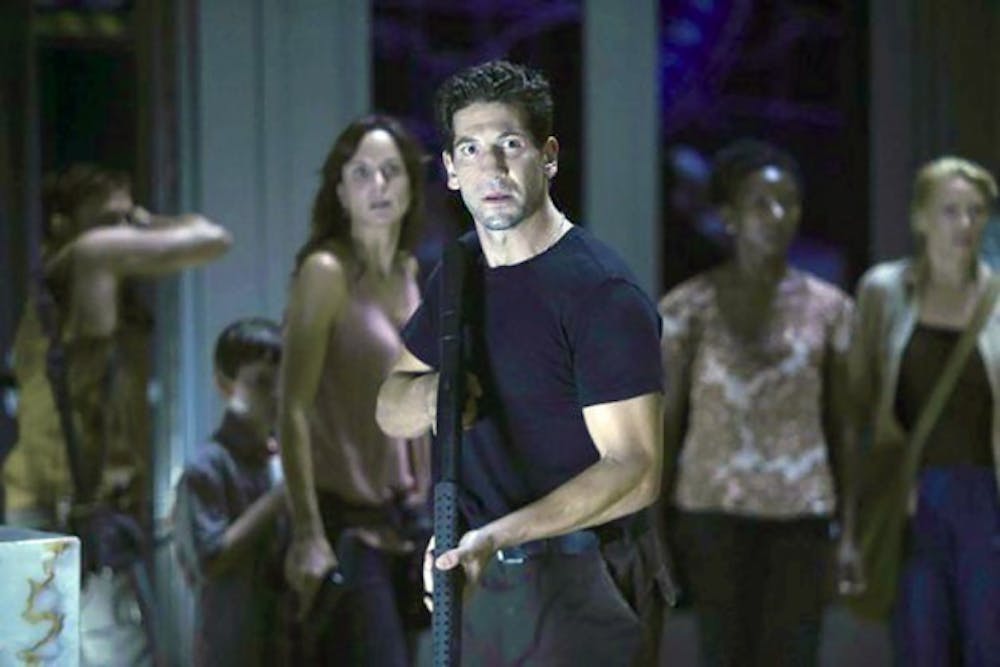Heartfelt storytelling and brain-splattering gunshots have proven to be a winning combination with AMC's latest series, The Walking Dead.
Sunday night saw the season finale to AMC's new post-apocalyptic horror series. While the finale may have left viewers hungry for more, it still rounded out the premiere season interestingly enough and has solidified The Walking Dead as one of the best new series on television.
The show, based on the comic book series of the same title, follows the story of Sherriff Deputy Rick Grimes (Andrew Lincoln, Made in Dagenham). Soon after waking from a coma to find that the world now belongs to flesh-hungry zombies, Grimes sets out to uncover the fate of his wife Lori (Sarah Wayne Callies, Lullaby for Pi) and his son Carl (Chandler Riggs, The Wronged Man).
This was the driving plot line for Grimes and the show as a whole during the first couple of episodes. However, the mystery is resolved for Grimes rather quickly, and by the third episode, he is reunited with his family and joins a group of survivors.
In addition to his wife and son, Grimes also discovers that his partner Shane (Jon Bernthal, Date Night) is still alive. From this point on, the show switches gears from a man on a quest to the story of a ragtag group of survivors trying to live day-to-day in a zombie-infested world.
The Walking Dead's story has more to it than one would expect. The zombie apocalypse serves as more of a backdrop to the series, and the strained relationships between the characters are placed at the forefront.
Before Grimes returned to his family in episode three, Shane had developed a relationship with Lori on the assumption that Grimes had not survived. Once Grimes returned, however, Lori felt as though Shane had betrayed her.
This situation develops into a prominent subplot that has yet to be resolved at the end of the season. Don't be surprised if the show delves into the situation even more when the second season starts up.
From lost loved ones to hidden relationships, the show features a heavy dose of drama. This manages to keep things interesting and allows the viewers to actually care when a member of the group gets his throat gruesomely torn out.
Although the show exhibits deep character connections and driving plotlines, that doesn't mean the zombie-killing action many tune in for gets toned down.
The series creators opted not to skimp on the blood, and it definitely works in the show's favor. Had they avoided the slow-motion headshots and flesh-tearing bites, the show would have lost its appeal in just a few episodes.
From the opening scene, it's made clear that The Walking Dead isn't a show for the squeamish. Within the first five minutes, Grimes shoots a young zombie girl in the head, and she falls back into a puddle of her own blood and skull fragments.
Moments like these are the reason The Walking Dead has become such a sensation so quickly. It's unafraid to be bold or graphic, and the crew behind the scenes does its best to give the show an authentic feel.
It would have been easy for this show to market itself as a gimmick and take the campy route to appeal to a wider audience, but it instead decided to take itself seriously. As a result, The Walking Dead has become a must-see for any horror, drama, or action fan.
Though the release date has yet to be announced, The Walking Dead has been renewed for a second season. When the time comes, fans can expect more intricate storylines, bigger reveals, and thousands of freshly-rotted zombies.
All in all, The Walking Dead is the best show to shuffle its way onto primetime television in a long time.
E-mail: arts@ubspectrum.com





